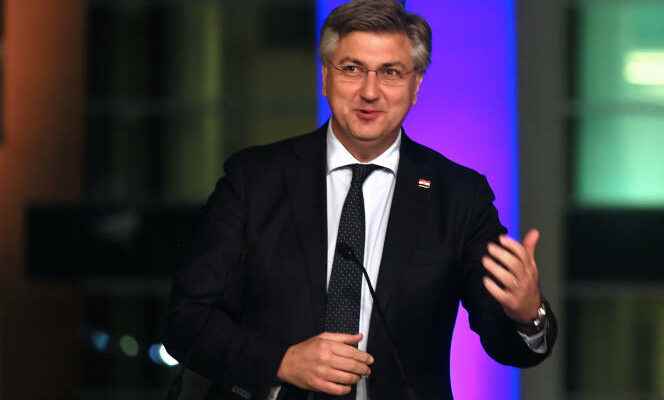Andrej Plenkovic was an hour and a half late, but he is jubilant. Thursday, December 8, in his office in Zagreb decorated with a huge Christmas tree, seated in a large leather armchair, the Croatian Prime Minister put his interlocutor, in Brussels, on the loudspeaker of his mobile phone to hear the news: the interior ministers of the European Union (EU) have just officially accepted that Croatia joins the Schengen area on 1er January 2023, while blocking Bulgaria and Romania, which were also candidates. For this French speaker, who was vice-ambassador of Croatia in France, and who has led the Croatian government since 2016, this is an achievement. The disappearance of the internal borders with the EU will take place on the same day as the accession to the euro zone, which had been officially approved in July.
Thirty years ago, Croatia was at war. Today, it is preparing to join Schengen and the euro. What’s your reaction ?
It is the achievement of the objectives that the first Croatian President, Franjo Tudjman, clearly announced in his speech of May 30, 1990, when the first Croatian Parliament elected in a pluralist and democratic manner was constituted. Its objective was the entry of Croatia into Europe, in the broad sense. This is what we did after obtaining the status of member country of NATO in 2009, then of member country of the European Union in 2013.
When I became Prime Minister in 2016, there was still Schengen and the euro zone. We have done a very thorough job, meeting the 281 criteria needed to enter Schengen. For the euro, there were very broad reforms to be made, which covered the management of public companies, the fight against money laundering or even macroeconomic criteria… This simultaneous entry into Schengen and the euro represents a success.
1er January, how are you going to feel?
It is truly the realization of the dream of Croatia coming home. Here we are. Thirty years ago, Croatia was not even a player on the international scene. Today, we are one of the fifteen countries that are at the same time within NATO, the EU, the euro and Schengen. The only thing left is to become a member of the OECD [organisation de coopération et de développement économiques]which would be the icing on the cake…
So much for the symbols. But what will it change for Croatia to be in the euro and Schengen?
First, you should know that Croatia is already highly “euro-ized”: more than half of our savings and more than half of our credits are in this currency. More than two thirds of our economic exchanges and more than two thirds of tourists come from the euro zone.
You have 47.09% of this article left to read. The following is for subscribers only.
